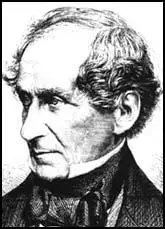William Ewart

William Ewart was born in Liverpool in 1798. An active social reformer, Ewart was elected as MP for Bletchingly in 1828. At first Ewart concentrated on legal reform and played an important role in the abolition of capital punishment for minor offences.
In the 1840s, Ewart, now MP for Dumfries, turned his attention to working class education. Ewart joined forces with the MP for Salford, Joseph Brotherton, and the Chartist, Edward Edwards, to draft a Public Libraries Act. Ewart faced considerable hostility from the Conservatives in the House of Commons. It was argued that the rate paying middle and upper classes would be paying for a service that would be mainly used by the working classes. Ewart was therefore forced to make several changes to his proposed legislation before Parliament agreed to pass the measure.
The Public Libraries Act became law in 1850. Whereas William Ewart wanted all boroughs to have the power to finance public libraries, the legislation only applied to those boroughs with populations of over 10,000. The Borough Councils also had to obtain the consent of two thirds of the local ratepayers who voted in a referendum. Other restrictions included that the rate of no more than a halfpenny in the pound could be levied. Furthermore, this money could not be used to purchase books.
When Ewart retired in 1868 he had served in the House of Commons for forty years. William Ewart died in 1869.
